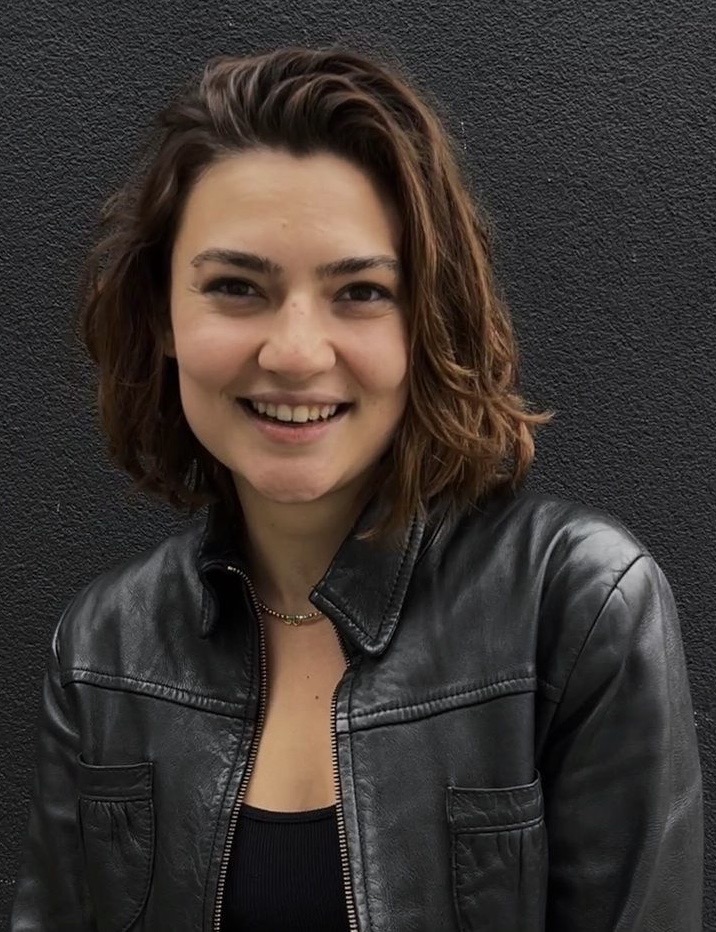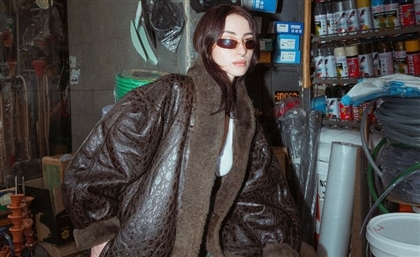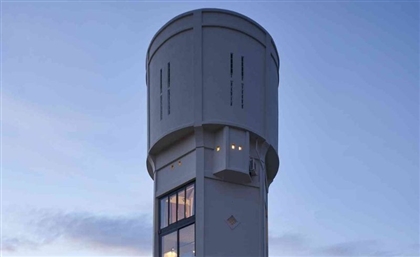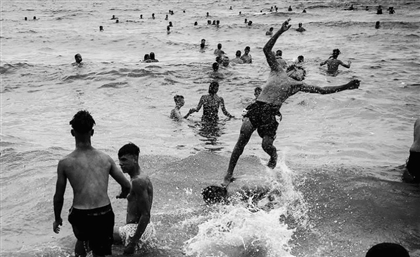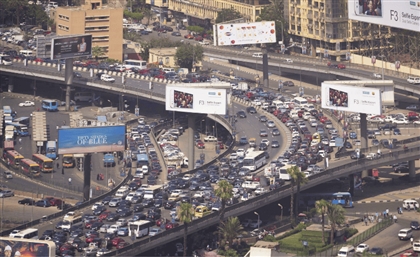Trail Maps to Zouj’s Mixtape 'Sabahu Al Kheir Men Zouj'
Part road diary, part studio log, writer Kaja Grujić pieces together the side quests that made Zouj’s new mixtape Sabahu Al Kheir Men Zouj.
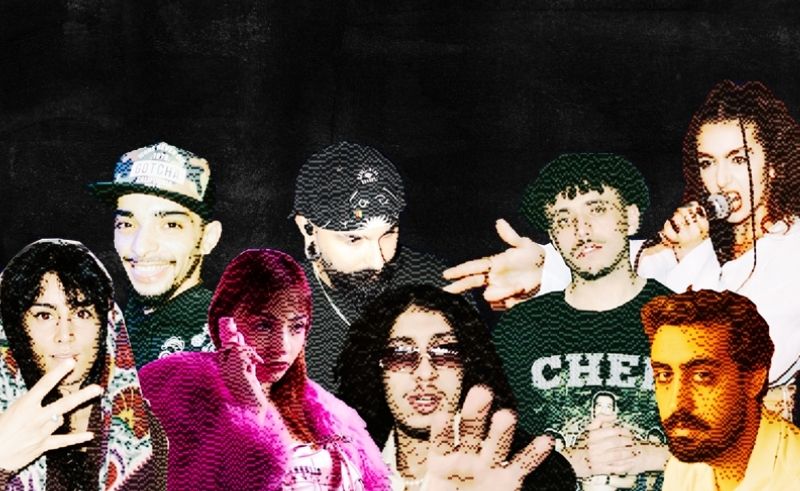
“I guess I’ve managed to sit down and do weird shit and be successful at it. Whatever I’m drawn into, I just kind of follow.” That’s not a tagline, it’s a compass. Adam Abdelkader Lenox, aka Zouj, is a French–Moroccan–American producer and artist based in Berlin, who moves by curiosity. He follows rabbit holes until they open new rooms – cities, genres, collaborators – then carries traces of each place into the next. This isn’t a straight-line career so much as a travelogue: detours, side streets, late-night studios, a map drawn in sound.
He spent his late teens and early twenties in Leipzig, on the road with hardcore punk bands, picking up the DIY habits that still anchor everything: book the show, screen-print the poster, run the desk. That ethic bleeds into his production – tactile, textural pop built from cut-up vocals, crooked drum programming, and synths pushed just past their limits.
After releasing his electronic mixtape TAGAT, Zouj slipped easily between clubs, festivals, and studios. He landed sync deals with Nike and Gucci, and, more recently, has been producing across the SWANA scene with artists like Nour.
Across these different chapters, Zouj was never just a lone auteur. The hardcore DIY through-line carries across genres and regions; it’s about the music, yes, but just as much about the people met along the way. So when he traveled through Algeria and Morocco and heard Way-Way – the unruly, unofficial new wave of Raï – it felt instantly familiar: the same anti-gatekeeping current, just running on a different voltage.
His new mixtape, Sabahu Al Kheir Men Zouj is stitched from that discovery. In 2023 he stepped into this journey like an Adventure Time quest, only the 'monsters' were dead laptops and the 'distant lands' were border towns between Morocco and Algeria shaped by Raï. Like diving into a physical YouTube rabbit hole, each door opened another IRL autoplay: a café voice note led to a backroom engineer, who led to a wedding singer, who led to a 3AM stem-swap in the Moroccan city of Oujda with Way-Way producers. Across these adventures he absorbed the scene’s glitchy grammar and picked up the quest’s magic item – a scuffed Yamaha A1000 synthesiser – which he hauled back to Berlin and wired straight into the mixtape’s engine.
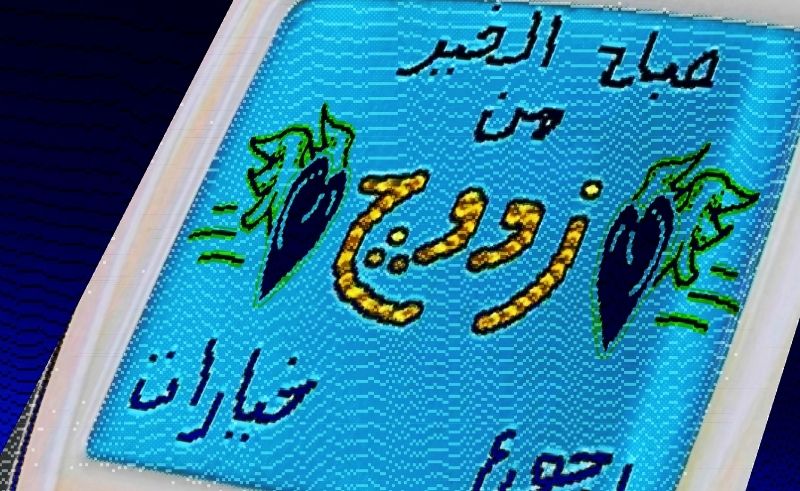
The result, released on his own Oddventure label, moves like a road film: collaborations and experiments connecting Casablanca and Berlin, Algiers to Beirut, Paris and Oujda. Short journeys, chance encounters, and a through-line of curiosity.
Zouj tells Scene Noise it starts the way most modern obsessions do: doom-scrolling on TikTok, letting the brain-rot run. The feed is serving spiritual bros and crypto tears when – whiplash – a clip lands differently: a woman dancing to something raw and clipped. “Like punk but it isn’t,” he says, kicked along by a lead line that feels like a digital ghost. Forget pristine studio polish. This is shop-floor distortion and too-much Auto-Tune that marks the region. “Everything else sounds like it’s falling apart, only the lead synthesiser holds the whole thing together.” Hooked, he jumps from TikTok to YouTube – the mothership of deep dives – but even that doesn’t scratch the itch. “I had to make my own rabbit hole,” he grins.
So he sets off – family car as tour bus, three generations squeezed in for a twenty-hour drive from his family's hometown, Rabat, towards the Algerian frontier. In the background of his mom’s and grandmother’s chatter, Zouj collects tracks, chops them up, makes samples, and separates the stems.
-0fa71399-d33f-48a8-8ab9-c1172d0c9749.png)
Oujda is the first checkpoint: a border-town where Raï has long seeped into the soundscape. New friends usher him from grimy 'snack' bars to grandma’s table, and, somewhere between bites, they listen to his snippets. He finally learns the name of this sound he’s been obsessing over: Way-Way. Half the room dismisses Zouj’s fascination as ‘trash for teenagers’; the other half can’t stop debating its cultural and political significance. Before long, talk turns into action and a family friend’s uncle calls Cheba Mamia, a Raï singer. Suddenly Zouj has keys to her beachside place and a direct line to her production team, producer-keyboardist Hichem and engineer-singer Ahmed. In their studio sits the holy grail of this micro-cosmos: a battered early-2000s Yamaha PSR-A1000 synthesiser, monochrome screen and all.
He travels east again, but this time to the Moroccan oasis, Figuig. In the off-season heat, the streets are half asleep, but tucked in a hidden corner, Zouj sits in a cafe with Jabali, a local Raï singer. Conversing between broken Darija and Chleuh dialect, they try to piece together a conversation until Zouj says the magic word – A1000 – and the room clicks. A handshake becomes a moped drive to meet Yahya, a blind teenage keyboardist who gigs with Jabali. Yahya opens his room, powers up the A1000. “You can have it for three days before my next show,” he shrugs. Presets spill exactly the textures Adam’s been hearing online – the IRL autoplay he’s been chasing suddenly sits in front of him. Three days with Yahya’s keyboard, and months of chasing its players, teach him that the A1000 isn’t magic on its own. It’s in how it’s played. The same 10 presets are bent to personality, sarcasm, and speed. Way-Way is cheap, chaotic, democratic, and, yes, deliberately polarising – “at its core it just feels so punk rock.” If the synth is the machine, the joke is the heart of the sound.
Months blur. A call from an artist drops in. A shared love of Algerian Raï, especially the Way-Way wave, brings them together. “Make me some Way-Way,’ that was the brief,” Adam laughs. Message received, but that meant he had to continue to chase the source properly once again. That trail led him to Rachid, Marrakesh’s mythical keyboardist he’d first found on Instagram, who, miraculously, agreed to meet for an A1000 session.
It’s too good to be true. Forty-two degrees. No shade. Zouj waits and waits, but he’s stood up by Rachid, yet again. Determined to salvage the day, he drifts across Marrakesh and winds up on the rooftop of the crumbling Renaissance Skybar. Just as he exhales, the city answers with a sandstorm - Blade Runner 2049 orange, wind knifing the pool. No Rachid, no pool day. Days of near-misses and café cameos later, they finally link, but too late to record. Instead, he catches Rachid’s majesty in a six-hour cabaret set, fingers flying over the A1000, a husky voice filling the room as an odd cross-section of regulars lean in, shisha smoke coiling like a fever dream. No session, but Way-Way is already seeping deeper.
Determined to now have his own A1000, he searches the depths of Avito (basically the Moroccan Craigslist). He finally finds a seller, driving through odd back-roads in Morocco to secure the synthesiser. The seller keeps him waiting nine hours, pinging him every few hours with a new upsell, the same A1000, “but better” – for more money of course. When the man finally surfaces, he produces five units of A1000 like contraband, the one on offer half-broken.
Zouj clocks the stakes in a single line. “There is almost no one that knows how to repair these anymore," he explains. "It’s like dead knowledge. The day these synthesisers die, the genre dies.” So he did the only thing his Berlin DIY instincts would allow: he took the busted A1000 anyway, nursed it into cooperation, and folded its crooked voice into the mixtape.
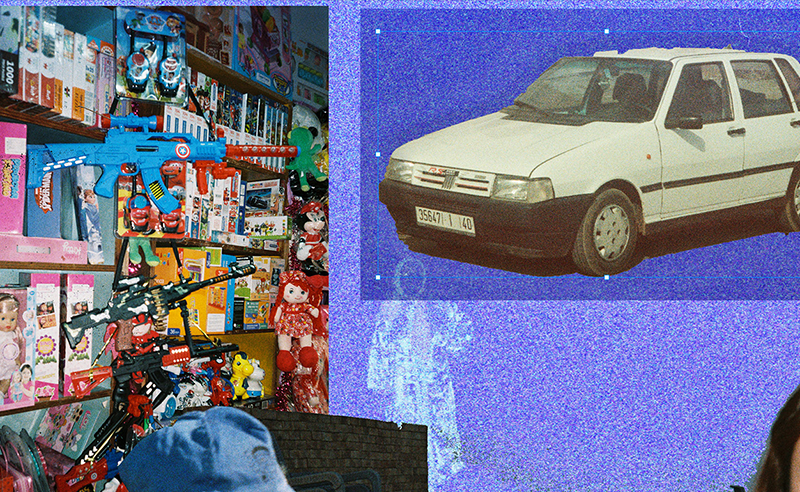
He talks about the mixtape like a scrapbook you can hear: each song a page ripped from a travel journal and half-sanded memories from the road. '2choufat' (Rita L’Oujdia) opens the book as a nod to the traditional essence of Way-Way. The track grew from an early practice session in Oujda where the A1000’s thin, stubborn lead pokes through shaky drums. From there Zouj began to experiment more with 'Waah Lani Rachit' (Pakkun). Finally figuring out 'the rules’ of Way-Way, he bends them to match rapper Pakkun’s flow, spontaneously linking up in Casablanca. 'Hasni 93' (Losez, Laï & Syqlone) becomes the hinge that swings between cities, Algiers to Paris to Beirut. He pulled in boundary-pushing artists together including, Losez, Algerian trap producer, Syqlone from France reshaping North African sounds with electronic hybrids, and Laï from Lebanon's rage-rap scene. Melting together chaos unfurls into catchiness. He reels it back to older Raï, with 'Plus Se Quitter' (Elias), an ode to ’80s Raï built on acoustic instruments, drum machines and patient, and songwriting infused with love declarations. Then 'Ma Cherie' (Naiires) closes it out with Raï’s sentimental present. Naiires (Younes), friend and guide through the genre from day one, holds the melody playing with the thin line between tongue-in-cheek romance and sarcasm.
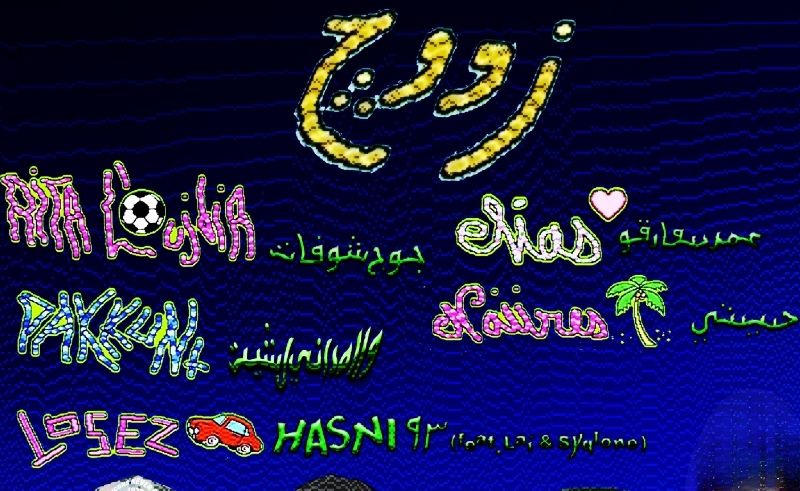
Zouj is clear that he isn’t writing a grand history of Raï with Sabahu Al Kheir Men Zouj. “That’s for scholars and elders” he laughs. This is a travel journal disguised as a mixtape: late-night YouTube deepdives, long drives with family, loaner keyboards, ghosted sessions, and one phone call that rerouted the whole trip.
There’s a small-batch vinyl of the mixtape coming via Oddventure, the co-owned label where Zouj’s punk instincts still live. He wants to add it to his shell of records, as a souvenir of his curiosity. It becomes music that you can hold, wrapped in his off-kilter collage artwork reminiscent of his travels and the characters he met along the way. And for anyone who won’t spin a record, he laughs: ‘Listen on YouTube. Loud. Only in low-res.’
Either way you listen, the road movie unspools: snack bars buzzing in fluorescent light, moped rides skimming the border, cabaret haze and a battered synthesiser holding the centre. The mixtape doesn’t draw a straight line through Raï so much as invites you into its alleys, each track a breadcrumb towards whatever deep dive you want to take next.







